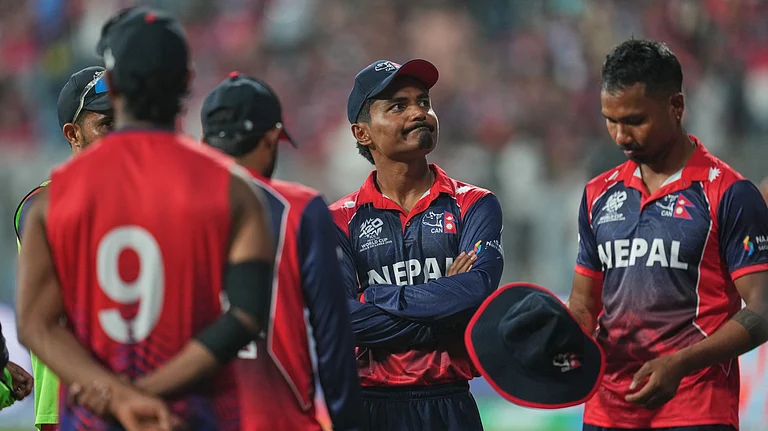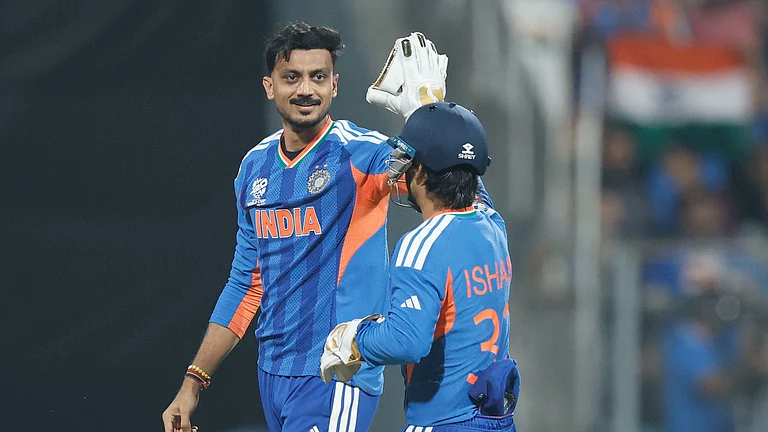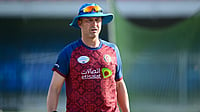Advocating a wait and watch approach for India on the Ukraine conflict, former Indian diplomats on Thursday said New Delhi has to "walk a tightrope" diplomatically as Moscow has been its "steadfast partner" for decades.
Russia launched a wide-ranging attack on Ukraine on Thursday, triggering serious concerns over the possibility of a full-scale military confrontation between the two countries.
G Parthasarathy, who has been India's envoy in several countries including Pakistan, said it is a "complicated situation" for India and the government will have to take a close call.
"My own hunch is that this will come to a vote in the UN Security Council. It remains to be seen whether we oppose or abstain," he told PTI.
Asked if India would have to do a balancing act, he said, "Yes. We will have to take a call and see how others behave. China is also acting cautiously at this point in time. So we will have to gauge how others react."
India should watch the emergence of the situation and then see how others react, he said adding that Russia has stood by India in very difficult times.
It is a "tightrope walk" for India as it has to balance between what the world thinks and what its own people think, he said.
The reality is that Russia has remained a very reliable friend, said Parthasarthy, who has also served in Moscow.
"We need to find a suitable balance," he added and noted that the West has also not been innocent in the whole affair and pushed Russia to the corner through NATO.
Former Indian diplomat Rakesh Sood also emphasised that diplomatic finesse and sensitive diplomacy is needed for India to deal with the current situation.
"Ultimately any policy has to serve India's interest. Russia has been a steadfast partner for India for decades and therefore, it will be difficult for us to either endorse Russian action or to be too critical of Russian action," Sood said.
"Whatever our concerns, we will share them with Russian leaders privately. But in any case, India, as a country we do not approve of unilateral sanctions. We have always spoken against unilateral sanctions. The sanctions that have been imposed (against Russia) are not mandated by the United Nations," Sood told PTI.
There are many diplomatic situations that cannot be easily judged on the basis of black and white, he said.
"After all, we blame Russia for using force to change territorial boundaries today. Let us remember that it was first done in 1999 by NATO forces that carried out airstrikes in Serbia to create an independent country of Kosovo. It was opposed by the UN Security Council, yet NATO went ahead and did it," Sood, a former Indian envoy to Afghanistan, said.
Meera Shankar, who served as India's Ambassador to the United States between 2009 and 2011, noted that right now the government has adopted a "wait and watch" approach.
India has essentially urged that nothing should be done which causes the situation to aggravate further and that every effort should be made to resolve the issue through discussions and negotiation, she said.
"That is what the government has said and that is what its policy is right now. It is focussing its efforts right now on the safety and security of our own nationals in Ukraine, arranging flights for bringing back students and others who are trapped," he said.
"We will have to see how far this will go. Is it limited to the Luhansk and Donetsk regions, does it extend to the claim line of the separatists, does it go beyond that into western Ukraine…I think at the moment the approach adopted by the government is appropriate for the circumstances," she said.
But the government would have to adjust it depending on the circumstances on how the situation develops, Shankar added.
Russian President Vladimir Putin, who cast aside international condemnation and sanctions and announced the launch of the military offensive against Ukraine on Thursday, also warned other countries that any attempt to interfere would lead to consequences they had "never seen".


























